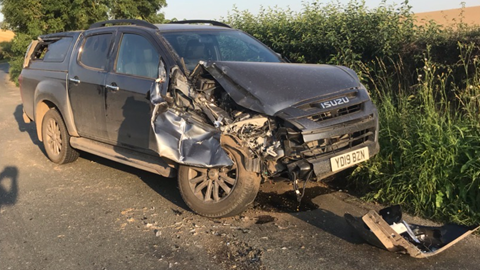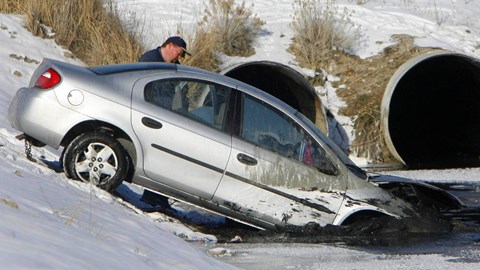► Advice on staying insured during the pandemic
► Non-essential trips won’t invalidate insurance
► Seek advice from your insurance provider
Once again, England is in lockdown. From Thursday, 5 November 2020, the government’s official advice has been to remain at home except for essential travel.
We’ve plenty of advice surrounding the current guidance, which you can read about here, but lockdown also throws up some questions surrounding insurance.
Coronavirus (Covid-19): advice for drivers
Am I insured to drive during lockdown?
As long as you’re insured to drive the rest of the time, yes. A spokesperson from the Association of British Insurers has confirmed that there’s no issues with driving your car during the lockdown period, even if it’s for non-essential travel – you will still be covered.
“During lockdown the government has advised against all but essential travel,” the ABI said. “Motor insurers continue to cover those using their vehicle for commuting to work and NHS volunteering without you having to first tell them. You should follow government restrictions, but if you do use your car for non-essential travel, you will not risk invalidating your car insurance.”
Non-essential travel could result in a £200 fine, though, so there is a good incentive to stay at home.
What if I’m driving to work?
Driving to work is fine. However if, pre-pandemic, you used public transport, and have now switched to the car in order to avoid contact with others, your insurance may not cover you. Or, at least, it wouldn’t have – but the Association of British Insurers has pledged that insurance will cover those who temporarily need to drive to work due to the pandemic.
The same applies to those who are using their car for their job, if they’re a key worker, or those who are volunteering for the NHS.

This cover continues until December 31, when the ABI will review this policy. After this date, you may decide to continue driving to work, at which point, your insurance could be invalidated if the ABI does not extend this deadline.
If you previously declared that you’d be using the car for ‘Social, Domestic and Pleasure’ only, then you’ll need to tell your insurer that you now use the car for commuting, too. This is a simple change and rarely adds more than a few pounds to the cost of your premium, but commuting without it could cost you a fortune if a claim is deemed to be invalid.
Can I reduce my cover?
There’s no doubt that most of us are now driving less than we have been – and if your workplace has committed to long-term remote working or something similar then you may see this reduced mileage continuing into 2021, post-Covid and beyond.
It’s worth contacting your insurer, then, to see if reducing the stated mileage on your policy could see a similar drop in your premiums.
Insurers have warned, though, that you should declare the mileage you think you’d be doing ordinarily, and not reduce it purely because you’re driving less now. If you’ll be returning to a higher mileage after the country re-opens, then reducing your mileage now could see your insurance invalidated later.
What if I’m not using my car at all?
It could be tempting in scenarios like this to simply shutter your car for the duration and save some money on running costs. Remember, though, that you’ll need a dedicated, off-road parking spot if you intend to SORN your vehicle or cancel your insurance policy.
What is SORN? Statutory off road notifications explained
Any vehicle parked on the public road requires tax and insurance, whether you’re driving it or not. Think carefully before cancelling your policy – you may end up paying more in the long run, especially if there’s a cancellation penalty or if you’d be sacrificing your no-claims bonus.
What if I can’t afford my insurance payments?

Speak to your car insurer if you’re struggling to pay your insurance premiums. Most insurers will have procedures in place to aid those who’s income has been reduced by the pandemic, and you may be able to negotiate up to three months of payment holiday or a temporary change to reduce the cost of your policy.
I’m self-isolating and someone needs to drive my car
There are no additional protections in place for this scenario. If you’re showing symptoms of Covid-19 or have had a positive test, you need to isolate at home. If someone supporting you needs to use your car, for example to collect groceries or medication, they’ll need to be appropriately insured.
That means that either they’re a named driver on your policy or they have a clause in their insurance allowing them third-party cover when driving another car with the owner’s permission.